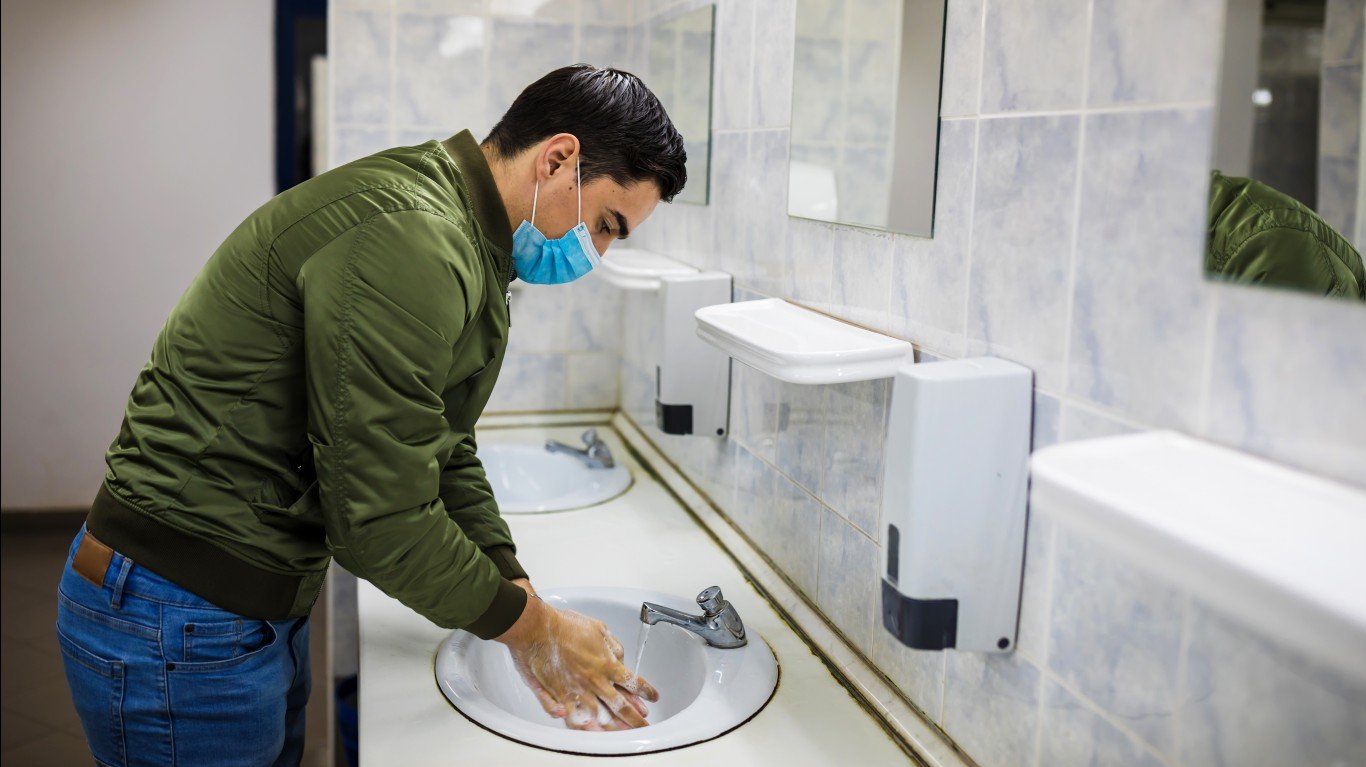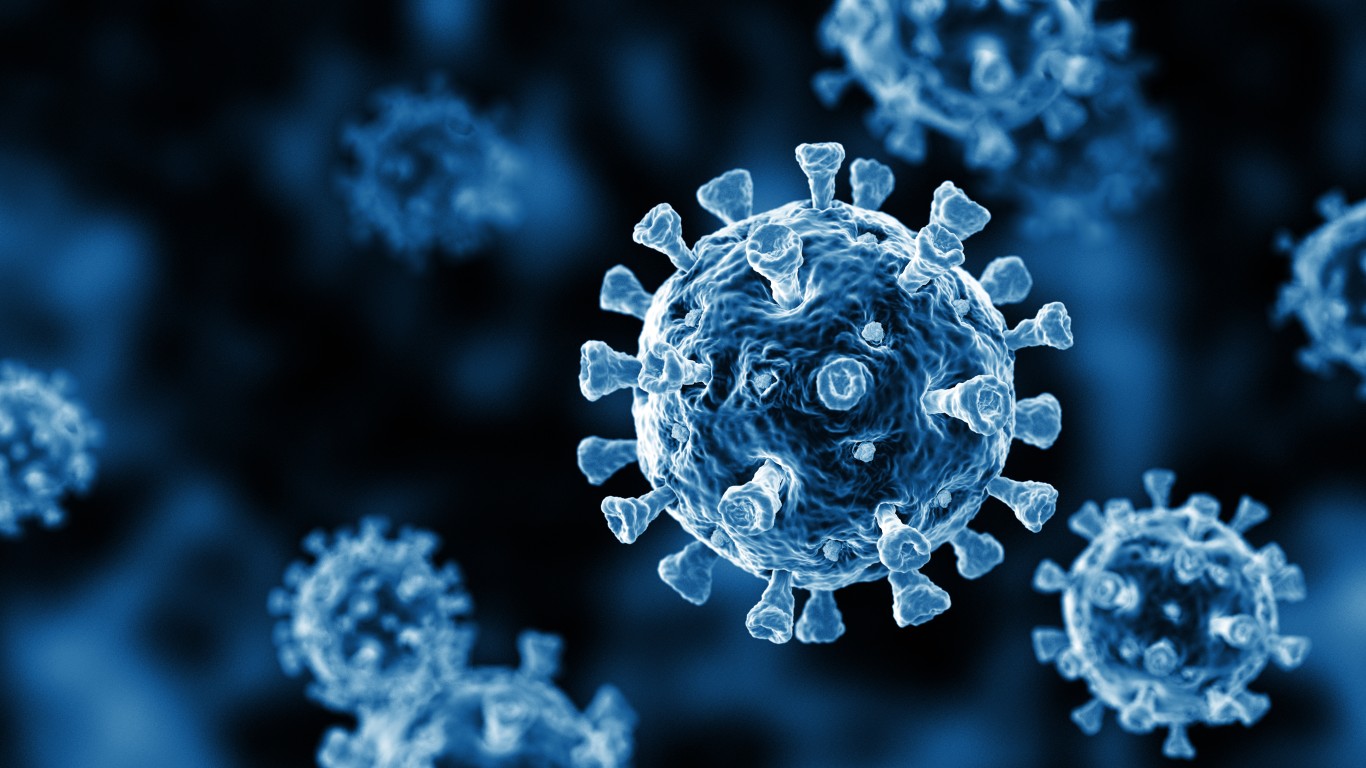

The COVID-19 pandemic is now over a year old. The way the disease is diagnosed and is treated has changed. Of course, new vaccines have recently altered the landscape of prevention radically. The Centers for Disease Control and Prevention (CDC) continues to offer guidance for personal protection. The most recent addition to this is that people may find it safest to double mask, because single masks may not fit well or they may be made of materials that are not ideal to prevent transmission.
Although the spread has slowed, the presence of the disease is still nearly universal. Confirmed cases in America have reached 27,438,560, which is up by 56,482 since yesterday. However, most medical experts believe the count is much higher than this because of lack of diagnosis in some cases and the absence of symptoms with others. Fatal cases number 472,335, after a one-day gain of 1,675. Experts also watch hospitalizations carefully. These topped 100,000 nationwide for a time but have fallen in the past few weeks.
Anxiety about the spread of the disease has not ended. Many forecasts put total U.S. deaths at over 600,000 by summer. And there are several variants to the disease first identified in Brazil, South Africa and the United Kingdom. These may spread more quickly or be more fatal, and they may not be entirely treated by the current vaccines.
The new mask guidance remains a very small part of the overall suggestions of the CDC about personal protection. On top of potential double masking, masks should have a nose wire to keep them closer to the face and a brace to hold the mask away from the face. They should fit so that, as the CDC website says, “you will feel warm air come through the front of the mask and may be able to see the mask material move in and out with each breath.”
However, the lion’s share of advice about preventing COVID-19 infection is the same as months ago, is effective and is worth revisiting.
The CDC’s primary advice falls into three buckets, each of which is a critical standard for prevention. The first is mask wearing, the specifics of which were updated only yesterday. The second is social distancing. The six-foot rule has not changed and is what the CDC quaintly describes as “two arm lengths” from people you do not live with. The third major piece of advice is to avoid crowds. The rules around this are much more complex than the other two because of the rapidity with which economies are opened and closed, partially or entirely, as the disease becomes more or less dangerous from city to city and state to state.
The more specific advice is all common sense, at least for people who have experienced the flu or colds over the course of their lives. Wash your hands after leaving any public place, after touching things (including your own mask), after caring for someone who is sick and after touching a pet.
Avoid places with poor ventilation, a first cousin of the advice to avoid crowded places. Circulating air is safer than stagnant air.
Clean and disinfect all surfaces you come into contact with: phones, countertops, desks, toilets, light switches and doorknobs.
Practice monitoring and self-care. Among other things, watch for symptoms: fever, cough, shortness of breath and loss of taste or smell. Take your temperature, if symptoms occur, and check blood oxygen levels.
Finally, get a vaccination. After months of waiting, that has finally become a possibility.
Click here to read “This Is How Vaccination Needs to Change, According to Dr. Fauci.”
Sponsored: Want to Retire Early? Here’s a Great First Step
Want retirement to come a few years earlier than you’d planned? Or are you ready to retire now, but want an extra set of eyes on your finances?
Now you can speak with up to 3 financial experts in your area for FREE. By simply clicking here you can begin to match with financial professionals who can help you build your plan to retire early. And the best part? The first conversation with them is free.
Click here to match with up to 3 financial pros who would be excited to help you make financial decisions.
Thank you for reading! Have some feedback for us?
Contact the 24/7 Wall St. editorial team.



